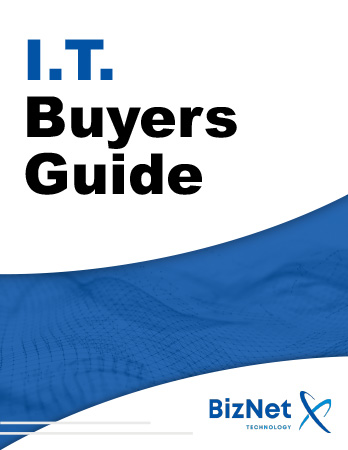As Managed Service Providers (MSPs) specializing in healthcare, we understand the critical importance of safeguarding patient data in an era of ever-evolving cybersecurity threats. CEOs and decision-makers play a pivotal role in steering the course of healthcare organizations, and securing sensitive patient information should be a top priority. In this article, we present key cybersecurity tips tailored to empower healthcare leaders in safeguarding patient data.
1. Comprehensive Security Assessments:
 Initiate regular and thorough security assessments to identify vulnerabilities within your healthcare organization's digital infrastructure. Engage with your MSP to conduct penetration testing, vulnerability assessments, and risk analyses. A comprehensive understanding of your security landscape will inform strategic decisions and enable targeted improvements.
Initiate regular and thorough security assessments to identify vulnerabilities within your healthcare organization's digital infrastructure. Engage with your MSP to conduct penetration testing, vulnerability assessments, and risk analyses. A comprehensive understanding of your security landscape will inform strategic decisions and enable targeted improvements.
2. Strategic Security Policies:
 Collaborate with your MSP to establish and enforce robust security policies tailored to the healthcare industry. These policies should address data access, storage, and transmission, providing clear guidelines for employees and ensuring compliance with healthcare data protection regulations.
Collaborate with your MSP to establish and enforce robust security policies tailored to the healthcare industry. These policies should address data access, storage, and transmission, providing clear guidelines for employees and ensuring compliance with healthcare data protection regulations.
3. Cloud Security Best Practices:
 If your healthcare organization utilizes cloud services, work closely with your MSP to implement robust cloud security measures. Ensure that data stored in the cloud adheres to the same stringent security standards applied to on-premises systems. Implement encryption, access controls, and regular audits to safeguard patient information in cloud environments.
If your healthcare organization utilizes cloud services, work closely with your MSP to implement robust cloud security measures. Ensure that data stored in the cloud adheres to the same stringent security standards applied to on-premises systems. Implement encryption, access controls, and regular audits to safeguard patient information in cloud environments.
4. Third-Party Vendor Risk Management:
 Assess and manage the cybersecurity risks associated with third-party vendors and service providers. Your MSP can assist in evaluating the security practices of vendors that handle patient data. Establish clear contractual agreements that outline security expectations and responsibilities to ensure a secure supply chain.
Assess and manage the cybersecurity risks associated with third-party vendors and service providers. Your MSP can assist in evaluating the security practices of vendors that handle patient data. Establish clear contractual agreements that outline security expectations and responsibilities to ensure a secure supply chain.
5. Cybersecurity Insurance:
 Consider obtaining cybersecurity insurance to mitigate potential financial losses in the event of a security breach. Work with your MSP to understand the coverage options available and ensure that the insurance policy aligns with your healthcare organization's specific cybersecurity needs.
Consider obtaining cybersecurity insurance to mitigate potential financial losses in the event of a security breach. Work with your MSP to understand the coverage options available and ensure that the insurance policy aligns with your healthcare organization's specific cybersecurity needs.
6. Secure Telehealth Practices:
 In the era of Telehealth, prioritize the security of virtual patient consultations and electronic health records. Collaborate with your MSP to implement secure Telehealth solutions, including encrypted communication channels and secure platforms that comply with healthcare regulations.
In the era of Telehealth, prioritize the security of virtual patient consultations and electronic health records. Collaborate with your MSP to implement secure Telehealth solutions, including encrypted communication channels and secure platforms that comply with healthcare regulations.
7. Develop and Test Incident Response Plans:
 A swift and coordinated response to a cybersecurity incident is crucial. Develop comprehensive incident response plans that outline steps to take in the event of a breach. Regularly test these plans through simulated scenarios to ensure an effective response when needed.
A swift and coordinated response to a cybersecurity incident is crucial. Develop comprehensive incident response plans that outline steps to take in the event of a breach. Regularly test these plans through simulated scenarios to ensure an effective response when needed.
8. Regular Security Awareness Training for Executives:
 While employee training is crucial, extend cybersecurity awareness training to executives, including CEOs and decision-makers. Executives are often targeted in sophisticated cyber attacks, and educating them on the latest tactics can fortify the organization's overall security posture.
While employee training is crucial, extend cybersecurity awareness training to executives, including CEOs and decision-makers. Executives are often targeted in sophisticated cyber attacks, and educating them on the latest tactics can fortify the organization's overall security posture.
9. Promote a Culture of Cybersecurity:
 Cultivate a culture of cybersecurity awareness among healthcare staff. Encourage reporting of any suspicious activities promptly and make cybersecurity an integral part of the organizational ethos.
Cultivate a culture of cybersecurity awareness among healthcare staff. Encourage reporting of any suspicious activities promptly and make cybersecurity an integral part of the organizational ethos.
10. Secure File Sharing and Collaboration:
 Implement secure file-sharing and collaboration tools that comply with healthcare regulations. Your MSP can recommend and configure solutions that allow for efficient sharing of information among healthcare professionals while maintaining robust security controls.
Implement secure file-sharing and collaboration tools that comply with healthcare regulations. Your MSP can recommend and configure solutions that allow for efficient sharing of information among healthcare professionals while maintaining robust security controls.
In the ever-evolving landscape of cybersecurity, a proactive and multifaceted approach is essential for the healthcare industry. By implementing these tips, healthcare organizations can fortify their defenses, protect patient information, and maintain the trust that patients place in the confidentiality of their healthcare data. In the digital age, securing patient information is not just a necessity; it's a commitment to the well-being and privacy of those under the care of healthcare providers.
Elevate your healthcare organization's cybersecurity. Ready to implement these strategic insights? Book an IT consultation with our experts today, and let's fortify your data security together. Don't wait – take the first step towards a robust cybersecurity framework for your organization. Schedule your consultation now.




